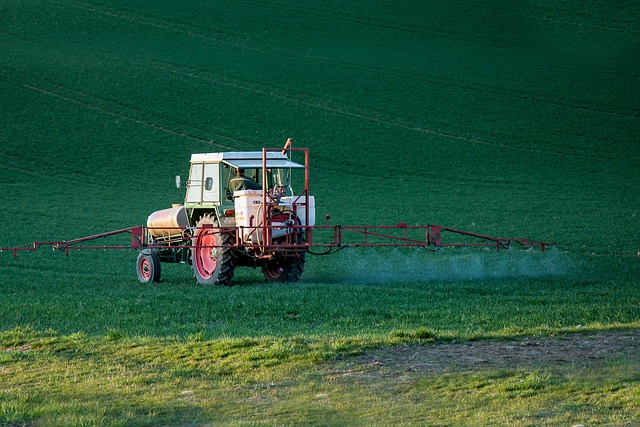Humane wildlife removal services offer effective rodent control solutions by prioritizing animal well-being through non-lethal techniques and strategic planning. Using live traps, these professionals capture and relocate rodents without harming other species or damaging the environment, contributing to ecosystem health and biodiversity preservation. Relocation ensures peaceful coexistence between humans and wildlife while preventing overpopulation that could degrade habitats and disrupt food chains. Employing humane methods, such as identifying and sealing entry points, using live traps, and maintaining a clean environment, promotes sustainable rodent control solutions and aligns with global conservation efforts.
In today’s world, humane wildlife removal and relocation services are becoming increasingly important as we strive to coexist with nature. This article delves into the sensitive approach of understanding humane wildlife removal, exploring eco-friendly practices through rodent control solutions, and highlighting the significance of relocation services for animal well-being and habitat preservation. Additionally, it offers expert tips for effective and ethical wildlife management, providing valuable insights for both professionals and homeowners facing wildlife encounters.
Understanding Humane Wildlife Removal: A Sensitive Approach
Humane wildlife removal is a specialized service that focuses on safely capturing and relocating animals, ensuring their well-being throughout the process. This sensitive approach is particularly crucial when dealing with rodents, as effective rodent control solutions require careful consideration of both human safety and animal conservation. It involves using non-lethal methods to minimize stress and injury to the animals, allowing for their peaceful removal from residential or commercial properties.
Professional humane wildlife relocation services employ trained experts who understand the behavior and habits of various species. They utilize strategic planning, including identifying entry points, setting traps, and employing deterrents, all while adhering to ethical guidelines. This method not only solves the immediate problem but also promotes long-term prevention, ensuring that both people and wildlife can coexist harmoniously.
The Role of Rodent Control Solutions in Eco-Friendly Practices
In the realm of humane wildlife removal and relocation services, rodent control solutions play a pivotal role in promoting eco-friendly practices. These solutions are designed to mitigate rodent populations without causing harm to other animals or damaging the environment. Modern rodent control methods often involve non-lethal techniques such as live traps, which capture rodents humanely and allow for their safe release elsewhere. This approach not only reduces the need for toxic chemicals but also minimizes ecological disruption.
Rodent control solutions contribute significantly to the overall health of ecosystems by preventing overpopulation that could lead to habitat degradation and disruptions in food chains. By adopting eco-friendly practices, wildlife removal services can ensure the preservation of biodiversity and maintain the delicate balance within natural environments. This approach aligns with the growing global emphasis on sustainability and conservation, making it a responsible and effective strategy for managing rodent populations.
Relocation Services: Ensuring Animals' Well-being and Habitat Preservation
Relocation services play a crucial role in humane wildlife removal, focusing on ensuring the well-being of animals and preserving natural habitats. When faced with pest issues like rodent control, these services offer a more sustainable approach compared to traditional methods. Instead of resorting to toxic chemicals or violent traps, relocation specialists capture and move wildlife to suitable alternative habitats. This process demands expertise in handling various species, understanding their behaviors, and identifying appropriate new homes.
By implementing these practices, we can minimize the negative impact on ecosystems and promote balance. Relocation services are particularly beneficial for native species that may be displaced due to urban expansion or habitat destruction. They contribute to both animal conservation efforts and community safety by providing effective rodent control solutions without causing harm.
Expert Tips for Effective and Ethical Wildlife Management
When dealing with unwanted wildlife on your property, it’s crucial to employ humane removal and relocation methods that respect the well-being of both the animals and the environment. Professional wildlife management services offer expert tips for effective and ethical rodent control solutions. One key practice is to identify entry points and seal them off, preventing future invasions while allowing peaceful coexistence with nature.
Using live traps instead of lethal methods ensures captured rodents are handled humanely and can be safely released back into suitable habitats away from residential areas. This approach not only minimizes stress on the animals but also reduces the risk of disease transmission. Additionally, maintaining a clean environment and securing food sources can deter wildlife, as they prefer natural habitats with readily available sustenance.
In conclusion, humane wildlife removal and relocation services are essential components of eco-friendly practices. By understanding the sensitive nature of these processes, leveraging rodent control solutions, and prioritizing animal well-being, we can achieve effective and ethical wildlife management. These approaches not only preserve habitats but also ensure the safety and successful relocation of animals, contributing to a harmonious coexistence with our natural environments.
